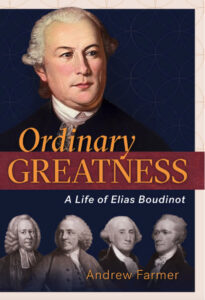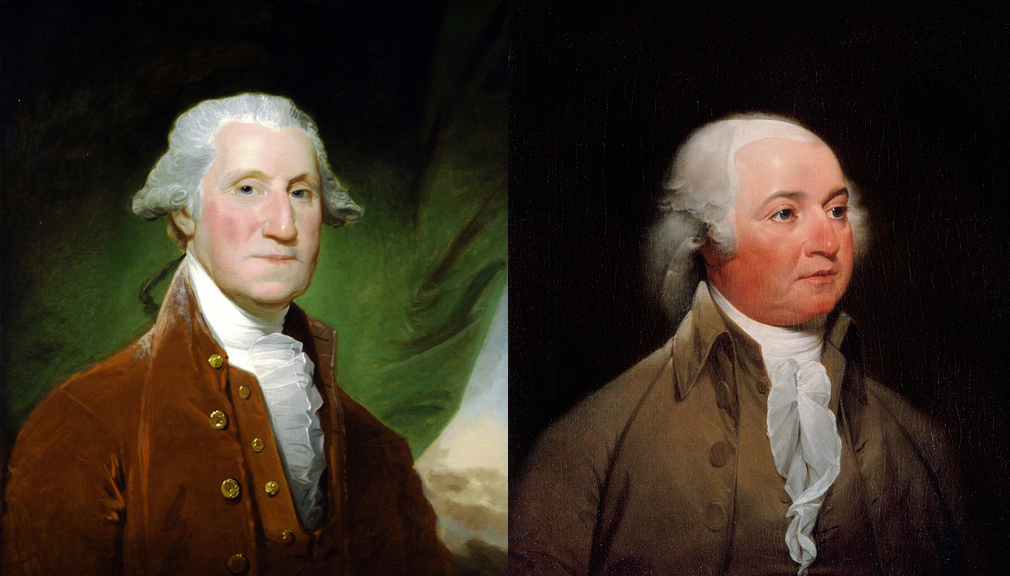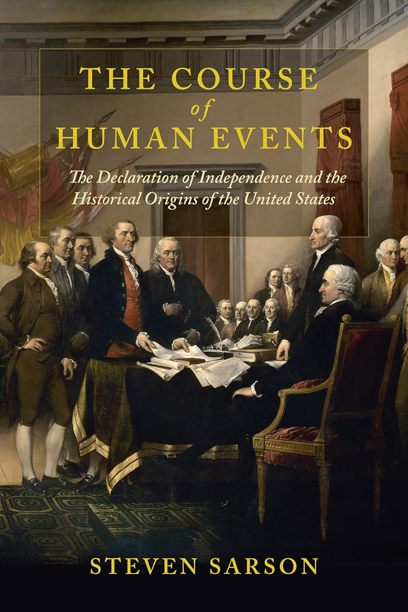BOOK REVIEW: Ordinary Greatness: A Life of Elias Boudinot by Andrew Farmer (American Bible Society, 2022) Paperback $17.95, eBook $9.99.
Andrew Farmer’s Ordinary Greatness: A Life of Elias Boudinot examines one of nation’s lesser-known Founding Fathers with particular emphasis given to his career as it concerns his relationship with George Whitefield, Benjamin Franklin, George Washington, and Alexander Hamilton.
Published by the American Bible Society, which Elias Boudinot helped found later in life, Farmer’s work does place importance on Boudinot’s religious convictions and how his faith continued to influence him throughout his life. While Boudinot may not be a household name, his record during the interwar period serving under George Washington and his tenure as a member of the Continental Congress, Confederate Congress, multiple US Congresses, and Director of the Mint warrants a biography.
Elias Boudinot IV was born on May 3, 1740. He immediately found himself in the company of a central figure in colonial society. His family, living on the south side of High Street in Philadelphia, had a neighbor in the already well-known Benjamin Franklin. Franklin and Boudinot would remain connected throughout life and despite a generational gap, Farmer emphasizes that the two had much in common—like their antislavery sentiments, lack of formal education, and military service.
 Farmer’s portrait of Boudinot ties his upbringing directly to the Great Awakening. “Elias Boudinot was a child of the Great Awakening. The first thirty years of his life were shaped by the worldview George Whitefield and his associates preached and popularized.” Whitefield, as a close friend of Franklin, would stay at his home in Philadelphia. Farmer concludes that due to Whitefield’s connections with Franklin, and Boudinot’s father’s association with New Light preachers, Boudinot would have heard Whitefield preach on multiple occasions. Farmer quotes the work of Thomas Kidd in making the correlation between the Great Awakening’s questioning of religious institutions in the colonies and the American Revolution that would soon follow. Boudinot, as a child of the awakening, was carried with the tide to becoming a figure in the revolution.
Farmer’s portrait of Boudinot ties his upbringing directly to the Great Awakening. “Elias Boudinot was a child of the Great Awakening. The first thirty years of his life were shaped by the worldview George Whitefield and his associates preached and popularized.” Whitefield, as a close friend of Franklin, would stay at his home in Philadelphia. Farmer concludes that due to Whitefield’s connections with Franklin, and Boudinot’s father’s association with New Light preachers, Boudinot would have heard Whitefield preach on multiple occasions. Farmer quotes the work of Thomas Kidd in making the correlation between the Great Awakening’s questioning of religious institutions in the colonies and the American Revolution that would soon follow. Boudinot, as a child of the awakening, was carried with the tide to becoming a figure in the revolution.
Although a Pennsylvania native, Boudinot’s father relocated the family to New Jersey in 1752. While making his living as a lawyer, he made his criticism of British rule known years before the American Revolution began with a report in the New York Mercury newspaper against the Stamp Act in 1765. Having stayed in New Jersey after moving there is his youth, Boudinot became involved with the colony’s militia and served in both the New Jersey Committee of Correspondence and as chairman of the New Jersey Committee of Safety. During the revolution, Boudinot reported directly to George Washington as Commissary General of Prisoners, obtained the rank of colonel, and served as a representative for New Jersey in the Continental Congress.
Perhaps the most discussed of the great names in Farmer’s work is Alexander Hamilton. Farmer dedicates chapters six, seven, and eight of his work to documenting Hamilton’s relationship with Boudinot during their time in the Revolution, serving on the Confederation Congress together, and how the two navigated politics during the early years of independence as Federalists.
Aside from discussing Boudinot’s relationship with the prominent figures of his age, Farmer’s most compelling chapter concerns Boudinot’s attitude towards slavery. Having died in 1821, Boudinot’s final years allowed him to witness the Missouri Crisis. He recognized the gravity of the Crisis much like Thomas Jefferson, who was only a few years from his own death in 1826. While the founders’ views towards slavery as an institution stirs much debate in contemporary circles, Farmer sets the record straight on Boudinot: “Elias Boudinot was openly and staunchly opposed on principle to the slave trade and the entire institution of slavery. He seems to have developed this conviction early and it continued to deepen until his final days.” But did that disqualify Boudinot from owning slaves? Consider one of the most vexing cases of the previously mentioned Jefferson. His career as a revolutionary saw him attempt to condemn slavery in the Declaration while the United States’ participation in the Transatlantic slave trade ended in 1808, his final year as president. Yet, Jefferson owned hundreds of slaves.
What of Boudinot? Through careful study of his upbringing and adult life, Farmer impressively answers the question of Boudinot as a potential slave owner
In summary, while social and circumstantial factors make it possible that Elias Boudinot could have been a slaveholder at some point, it can be argued, and it is the considered opinion of this author based on careful review of the available evidence, that Boudinot’s convictions against slave trading and ownership carried through consistently to his personal life. That is, he never participated in the trading or ownership of enslaved people.
Looking at Farmer’s picture of Boudinot for all its aspects, readers will know a founder of committed faith whose beliefs helped him cultivate relationships with names like Whitefield while the sheer circumstances of his birth allowed him to cast his lot with Franklin. A dedicated revolutionary, he took on the arguably thankless job of overseeing prisoners during the war while also serving New Jersey in multiple capacities. A Federalist in the early years of independence, he found an ally in his friend Hamilton and took charge of the Mint.
If there is one downfall to this biography, it would be where Boudinot exists in his own story. Readers might forget the central figure in service of some of his more famous associates. Significant portions of the biography are dedicated to their lives in a fashion that only provides more context to their careers without referencing Boudinot.
Farmer’s work is still welcomed and will hopefully encourage future scholarship down the road that magnifies some of the more obscure figures of the Revolution.
PLEASE CONSIDER PURCHASING THIS BOOK FROM AMAZON IN PAPERBACK or KINDLE. (As an Amazon Associate, JAR earns from qualifying purchases. This helps toward providing our content free of charge.)









One thought on “Ordinary Greatness: A Life of Elias Boudinot”
There seems to be unsung heroes throughout Americas history and this gentleman was one of them.